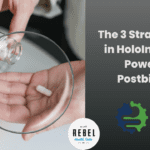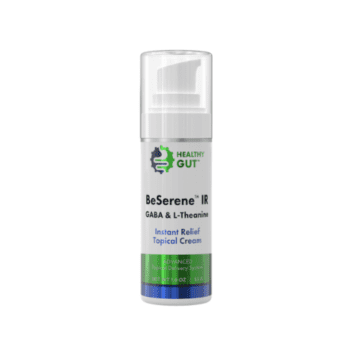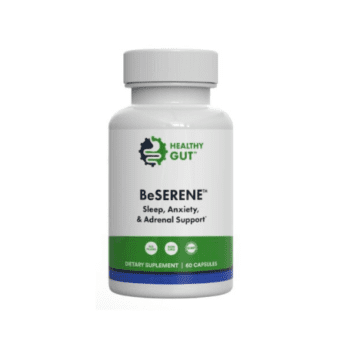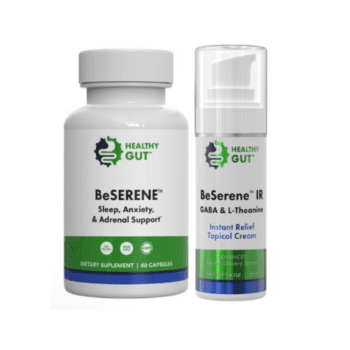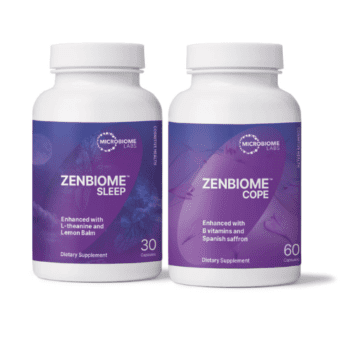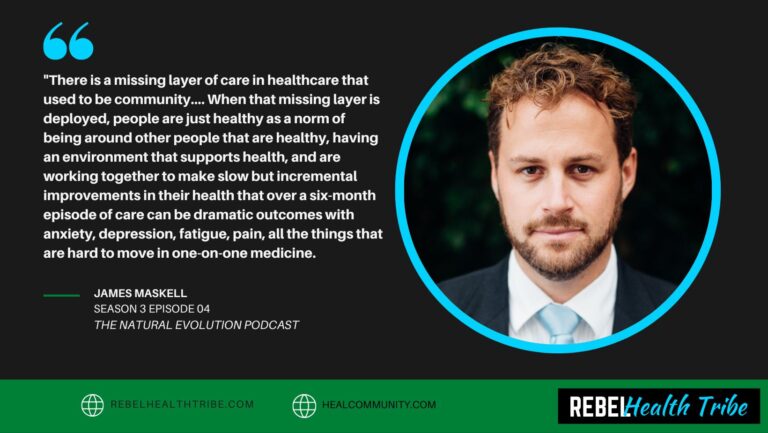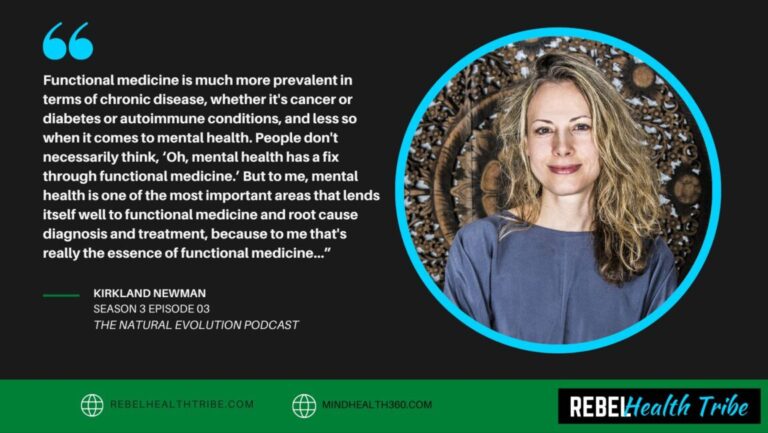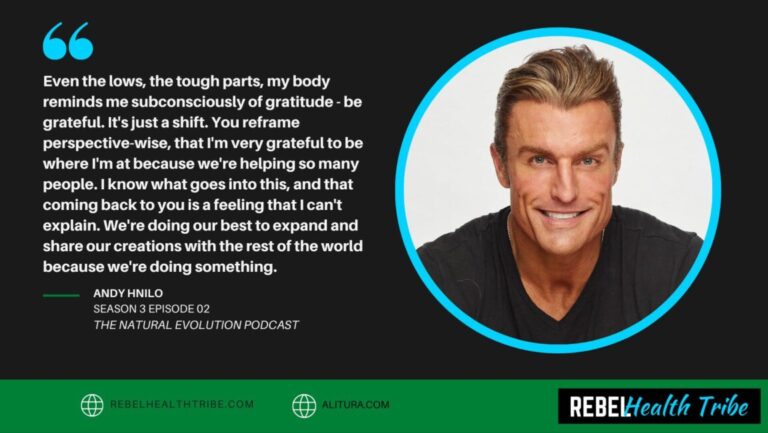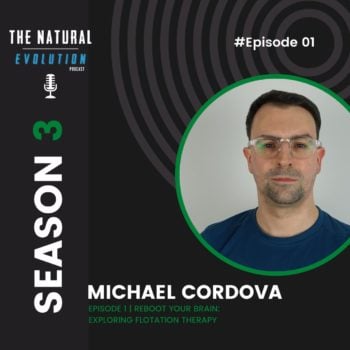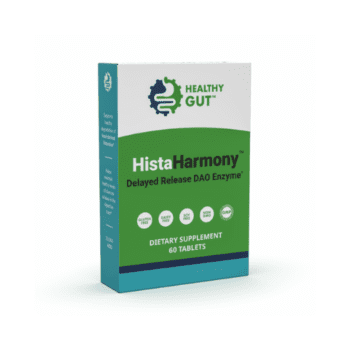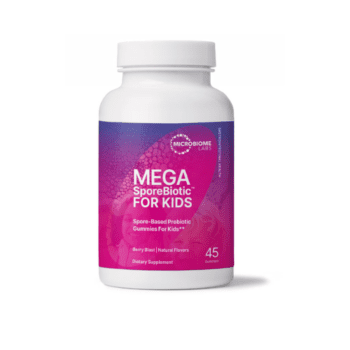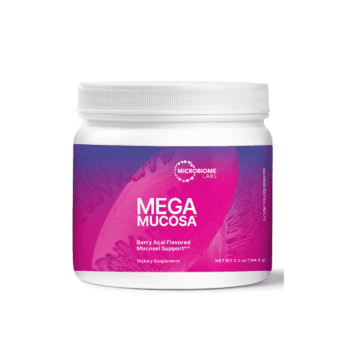
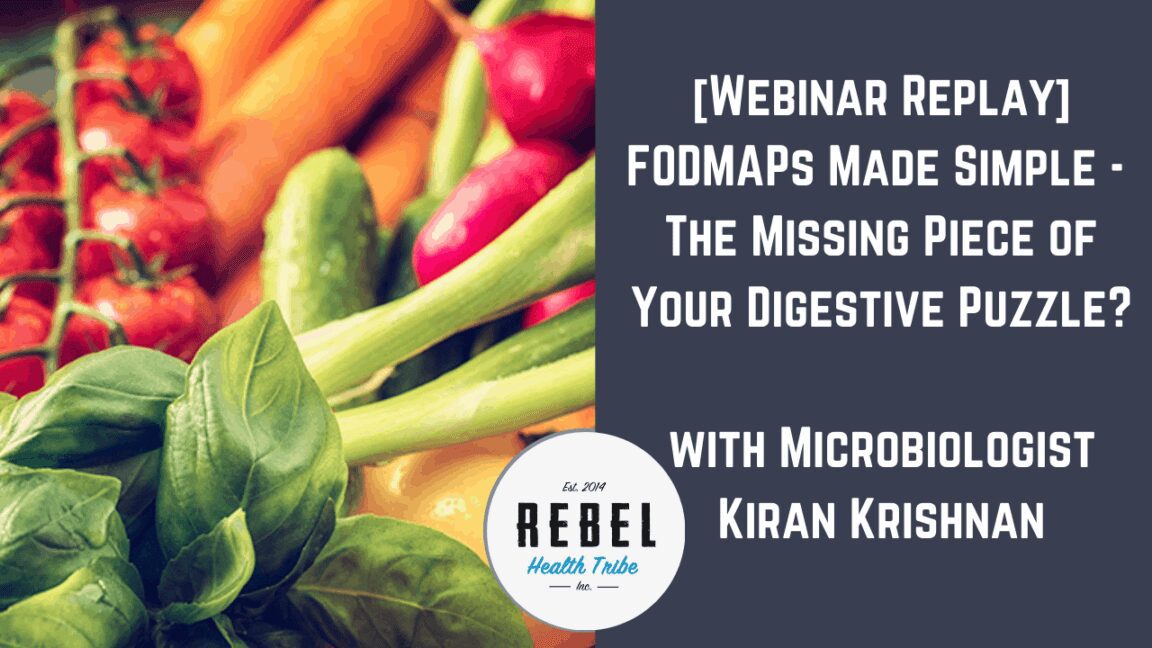
More Posts from
Gut Microbiome & Digestion
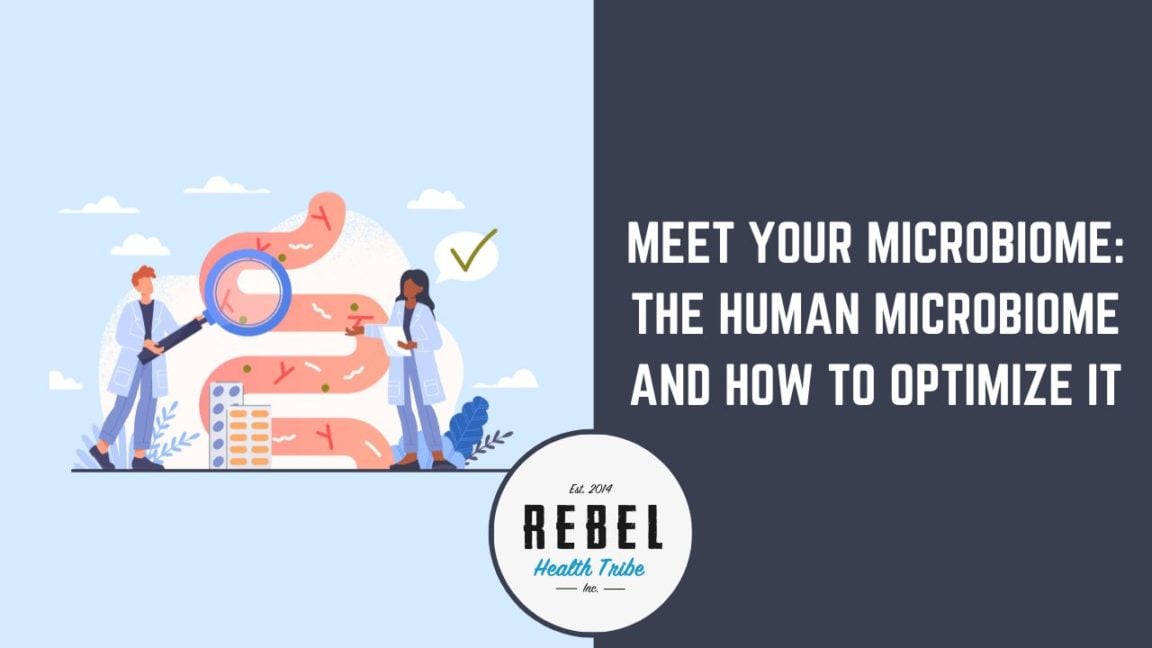
Meet Your Microbiome: The Human Microbiome and How to Optimize It
Meet Your Microbiome: The Human Microbiome and How to Optimize
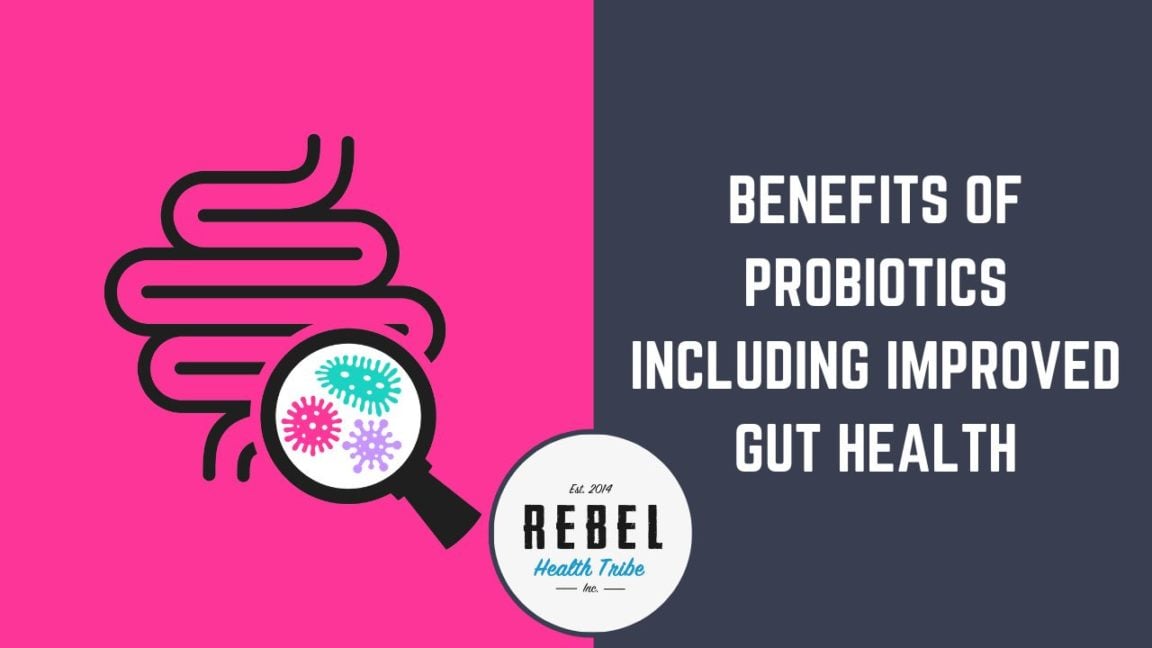
Benefits of Probiotics Including Improved Gut Health
Benefits of Probiotics Including Improved Gut Health “Probiotics” has become
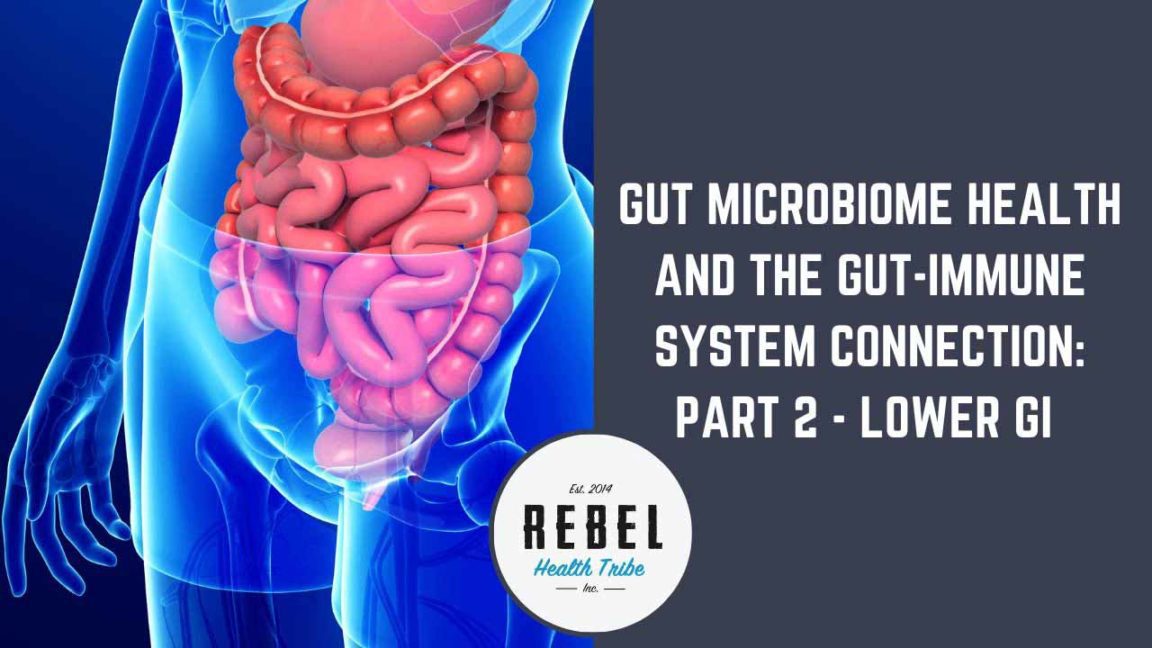
Gut Microbiome Health and the Gut-Immune System Connection: Part 2 Lower GI
Gut Microbiome Health and the Gut-Immune System Connection: Part 2
FODMAPs Made Simple - The Missing Piece of Your Digestive Puzzle?
with Kiran Krishnan, Microbiologist
Have you been diagnosed with Small Intestine Bacterial Overgrowth (SIBO) or Irritable Bowel Syndrome (IBS)? Do you suffer from mysterious bloating, gas, diarrhea, constipation, or other digestive symptoms? Are you a practitioner who works with individuals who fit the above descriptions? Have you heard of FODMAPs, but really have no idea what they are, why they can be difficult to digest, and/or what to do about the situation?
If you answered yes to any of the above questions, or if you want to simply understand these things on a deeper level than you already do… this webinar is for YOU! Microbiologist, Kiran Krishnan will be covering the following highlights.
Webinar Highlights:
- What are FODMAPs?
- What foods are high in FODMAPs?
- Why can they be difficult to digest for some people?
- Why is a low-FODMAP diet recommended for conditions like SIBO?
- What are some steps individuals can take to alleviate this situation?
Webinar Transcript:
Mike Roesslein:
Zoom likes to announce that really loudly now. We are now recording in progress. I am Michael. I’ll be your host. This is Kiran. I don’t even know how to introduce you. Our favorite microbiologist, the chief science officer at Microbiome Labs, and now you have a bunch of other fancy titles because you guys have new partners, so I don’t even know all the titles, but we’ve done a lot of webinars over the years, a lot of educational stuff from leaky gut things to yeast and infections to auto-immunity. Now, we’re going to be talking about FODMAPs and SIBO.
They always get linked together, not necessarily the same situation, but I know that this gets brought up in our group a lot. We have a lot of SIBO folks in our Rebel Health Tribe community, as there are everywhere, and FODMAPs are something that people probably see that somebody’s commenting about in a comment thread, and they may have no idea what it means, and they say, “Okay, don’t eat those. What are those?” And so we’re going to try to figure out a little bit around what are FODMAPs, and why do they trip up certain people with their digestion? What foods are they in? Why does that happen, and what’s the problem there, and then what are some potential solutions for that situation?
Again, I mentioned that there will be, maybe… I’ve got till… That’d be 7:30 your time, so I got a hard stop at that time, which is actually short for us, long for a normal webinar for normal people, but short for us. So if there is time at the end, we’re going to try to do some questions. The questions go in the Q&A, not the chats. If you put them in the chat, I’ll try to find them, but they could get lost.
And due to the shortness of the time, it’s funny how we look at 90 minutes as short, but due to the shortness of the time, please understand that we’re only going to be able to answer questions that are directly relevant to the topic that the webinar’s on, so the FODMAPs, the SIBO, those kind of topics. That said, we have the rest of the entire planet represented in our audience here, so you’re kind of traveling, and I didn’t know if you had something you want to put on, or if you want to just… We just ask questions, and you answer them, or how did you want to do this one?
Kiran Krishnan:
Yeah, so I did prepare like three simple slides for this, so we can talk about it, and it’ll be relatively straightforward. We’ll talk about why we really developed this product and the utility here. So let me pull up the slides I’m sharing there. I’m sure you can see it now, right?
Mike Roesslein:
Yes. Well, sort of. I see you’re like… Yeah, there you go. That’s the better…
Kiran Krishnan:
Is that better? Okay.
Mike Roesslein:
That’s a better view.
Kiran Krishnan:
Let’s talk about the product FODMATE and then what are FODMAPs. As you can see, FODMAPs here stands for fermentable oligosaccharides, disaccharides, monosaccharides, and polyols. So it’s basically four categories of carbohydrates that are found in a huge number of foods, and they are fermentable. They’re not easily broken down and absorbable by the human system, but they are highly fermentable by lots of different microbes within your GI tract.
And that’s where the problems come in because people who have dysbiosis, especially in the small bowel, these compounds become very easily fermentable by microbes that represent the dysbiosis and then the microbes in turn produce things like ammonia and can produce hydrogen gas and other egregious byproducts that make you feel all of these symptomology. So these are fermentable fibers. These are sugar alcohols. They’re also short chain carbohydrates. These are not absorbed well by our own digestive system, and so they do become subject to fermentation by microbes in the small gut.
The unfortunate thing is all of these are highly beneficial for the large bowel, and so what tends to happen is that if you have negative response to these types of carbohydrates in the small bowel, then you basically are told to avoid them completely, so then the large bowel gets almost none of this and all of the microbes, the beneficial microbes in the large bowel, live off of these types of carbohydrates, and they require them to produce things like short chain fatty acids, and neurotransmitters and so on.
So it’s really important to actually have FODMAPs within the diet, but for people with dysbiosis in the small bowel, SIBO and so on, it can produce all of these types of symptoms. So abdominal distension, pain, bloating, constipation, diarrhea, gas, and so on. So then the idea here is that we just avoid these things.
Now, the typical response from gastroenterologists and a lot of functional medicine docs is just go on a low FODMAP diet or no FODMAP diet, and I put up these couple of examples as the directives that people have to follow.
Mike Roesslein:
Did you make this slide?
Kiran Krishnan:
Yeah, I made this slide but I just… No, I didn’t make these charts. These charts come from [crosstalk 00:05:32]
Mike Roesslein:
Oh. I was like, man, that’s some fancy graphic work right there.
Kiran Krishnan:
I wish. I have no [inaudible 00:05:39].
Mike Roesslein:
Oh Medical News Today. I see.
Kiran Krishnan:
Yeah, so this comes from Medical News Today.
Mike Roesslein:
And Michigan Medicine. Okay.
Kiran Krishnan:
Exactly. And one of the things I wanted to-
Mike Roesslein:
I was like, “I did not know you were a graphic designer as well as a scientist.”
Kiran Krishnan:
I wish I had such talents, but nope, unfortunately. So basically what you’re told when you’re supposed to be on a low or no FODMAP diet is certain things to eat, certain things to avoid. These are examples that I’ve picked up to show you, is that it can be quite complicated and cumbersome. How do you go, and you avoid things like garlic and beans and onions? You go to any place, most things that have flavor to it are cooked with garlic and onions.
Mike Roesslein:
You want to eat food that tastes good.
Kiran Krishnan:
Exactly. What is a food that’s cooked where you don’t use garlic or onions? What is it going to taste like, just salt? And so it becomes really complicated for people, and then you see things like-
Mike Roesslein:
There’s overlap here too because if you’re trying to dodge dairy or dodge gluten, or dodge high histamine foods, I noticed the proteins there. Yeah, I could see where I would have a hard time keeping track of this.
Kiran Krishnan:
Exactly. And then you look at this chart says avoid things like almonds and then this chart somewhere here shows-
Mike Roesslein:
Eat almonds.
Kiran Krishnan:
… Yeah, almonds are okay. They’re part of the legumes and peanuts and all that you can eat. So it becomes very confusing and this is the main reason we wanted to develop this particular product is because yes, if you can follow a low FODMAP diet, it’s going to reduce this symptomology.
Mike Roesslein:
But then your bugs in your large intestine aren’t getting these things.
Kiran Krishnan:
That’s exactly right. So what you’re doing as you’re trying to avoid this symptomology, you’re actually reducing the diversity in your gut microbiome. You’re actually reducing the important postbiotics that will be produced if you do consume these carbohydrates, that are required for healing the gut, healing the lining of the gut, things like butyrate that are so important.
This is the stuff that your large bowel bacteria will convert into butyrate, acetate, propionate that impacts the skin, the immune health, your brain, and all kinds of stuff. So we are going through this mess of trying to figure out, “Wait, can I eat carrots and broccoli or can I not? Can I eat peas? Oh no, this dish has peas in it. I can’t eat it. Oh, by the way, it was cooked with onion stew, so I can’t eat it.”
So you’re going through all this massive complication all to avoid the symptomology while at the same time with really low and poor quality of life, and you’re hurting your large bowel bacteria, which eventually will actually catch up to you to much more serious things than bloating and abdominal pain and so on.
Here’s just another example. These are what low-FODMAP people have to follow. How are you going to remember this I can eat freely. This whole list of things. Yay. This I have to watch out for in proportions. How are you going to remember any of this stuff?
Mike Roesslein:
It’s just a headache. If I’m understanding this correctly, it’s not that you don’t have the microbes to break them down. We should maybe just go back for a second in your mentioning dysbiosis in the small bowel and the small bowel, the small intestine, not really supposed to have lots of bugs.
Kiran Krishnan:
Yeah.
Mike Roesslein:
And so these things would naturally in a healthy gut just pass through the small bowel, essentially, arrive in the large intestine and then your bugs would break it down and create all these goodies that are really good for the gut lining. But if the bugs are in the small bowel where they shouldn’t be, those bugs break it down and cause that list of symptoms that was on the previous slide.
Kiran Krishnan:
That’s exactly right. So think about the small bowel. You shouldn’t be getting fermentation going on. All the fermentation in your bowel is supposed to happen in the large. What happens when you have an overgrowth of microbes in the small bowel, especially if you’re seeing a taxa shift, meaning you’re changing the types of microbes that are now present in the small bowel, you will get fermentation activity.
Now in part, because the natural bugs, the healthy ones that are found in your small bowel, during the process of digestion and eating those bugs get completely suppressed. Things like bile, which acts as a strong antimicrobial will reduce their metabolic activity so that even if they could break down and start fermenting these compounds, meaning they had the capability, they wouldn’t be able to when the compounds are present in the gut, because things like bile and the triggering of something called a FXR nuclear receptor, which is at the terminal end of your small bowel, it produces antimicrobials and other things to slow down the metabolic activity of the natural bugs within your small bowel.
But if you’ve got new bugs coming in that shouldn’t be there, and we can talk about how those new bugs come in, then you’ve got these new bugs that are resistant to those metabolic suppressors, and you’ve got higher levels of them, so they will start breaking down these compounds in your small bowel, thereby producing gas and other things that give you those symptomologies.
So at the end of the day, when you’re told to go on a low FODMAP diet, and you’re trying to follow these things, you’re really going after reducing symptomology. You’re not solving anything. There’s no healing happening. There’s no changing the microbiome that’s happening. There’s no improving the system. There’s no long-term positive effect here. All you’re doing is chasing a reduction of symptoms in that immediacy right after a meal. You’re not changing the dysbiosis and the leakiness of the gut and all that’s happening already in the small intestine.
So that’s where we saw this issue of narrow diets as being a solution for gut symptomology, as being problematic because again, there are lots of things in here, this watch out area, that are so good for you. Alfalfa sprouts, fantastic nutrition for you.
Mike Roesslein:
Yeah, artichokes.
Kiran Krishnan:
Artichokes.
Mike Roesslein:
Pretty much everything on that list.
Kiran Krishnan:
Exactly. There are studies that show that eating artichokes can actually reduce the risk of all kinds of chronic illnesses. Avocados. Studies that show that eating an avocado will reduce inflammatory response to your whole meal’s digestion by just adding a single avocado to that particular meal. Beets.
Mike Roesslein:
There’s the whole cruciferous category. I see broccoli-
Kiran Krishnan:
Broccoli.
Mike Roesslein:
… brussels sprouts.
Kiran Krishnan:
Broccoli, of course, with all the sulforaphane in there that supports the detox pathways that are so important. You are really shooting yourself in the foot by going through this kind of elimination type of diet.
So, it becomes a big problem, and it’s not solving any of the issues. That’s one of the things we saw, and we wanted people to be able to more freely eat foods, especially these kind of healthy foods that are really important for them, than having to go through this process of trying to find things that they can eat. And that’s where the FODMATE comes from.
The idea is that when you look at the category of carbohydrates, that cause this problem, this egregious problem with the abdominal symptomology and so on, it’s really things that can be broken down by enzymes. And when they’re broken down by enzymes during the digestive process, then they’re not available to those dysfunctional bacteria in the small bowel for those dysfunctional bacteria to ferment and cause the symptomology. And then some of it will actually make its way into the large bowel, so you can actually start feeding the large bowel bacteria these important carbohydrates that they need.
So that is a critical distinction here. We’re not encouraging people to avoid those foods. We’re saying, “If you are trying to avoid them, you can be a little bit more liberal about what you eat.” You don’t have to go to a restaurant and go, “Is this cooked with garlic and onions [and blah, blah, blah].” You can actually consume some garlic and onions and not have a problem because you have this enzyme mix that takes care of the vast majority of those FODMATEs and the carbohydrate structures that become fermented and cause a problem.
So we’ve got the alpha-galactosidase that breaks up the vast majority of those oligosaccharides. You’ve got endo and exo inulinase, which actually breaks up those small peptides, the short chain carbohydrates. You’ve got glucose isomerase, which makes up the disaccharides that get fermented. You’ve got the pectinase that breaks up some of the other compounds that are coming from the plant-based foods. They get fermented. So you’ve got this really powerful set of enzymes that allows you to eat FODMAPs without the abdominal symptoms.
And that’s the whole idea behind it is that we wanted to have people avoid having to go through and figure all this out and at the same time, not getting their large bowel the types of fibers and oligosaccharides, the large bowel needs and be able to be more liberal and improve quality of life. So that’s really the simple parameter here because one of the things that we kept getting from doctors and consumers that reach out to us all the time is how difficult it is for them to go through these restrictive diets. It’s a huge impact on quality of life, and then they really can’t maintain it and instead of trying to figure out what I can’t eat, what people tend to do is they figure out five or six things that they can eat, and that’s all they eat.
And when your diet goes down from dozens of types of foods to five or six things, then the diversity in your microbiome suffers dramatically. And when the diversity of your microbiome suffers, that starts to dismantle the house of cards, if you will, because diversity at the end of the day is the most important thing for overall health and wellness. So that’s the simple story behind this thought.
Mike Roesslein:
That’s interesting. I’ve taken digestive enzymes of many, many forms over the years, and I’m pretty familiar with a lot of different formulas and lactase is in most of them. The rest of these I’ve not heard of before. Was this like a, “Here’s a problem. We need to find a solution” situation? Somebody go research all the enzymes that break down FODMAPs, or how did you…? I mean, pectinase. I can use the root words of these and make sense out of what they do, but I’ve never seen them in any enzyme blend before, and I’m wondering why that is.
Kiran Krishnan:
So, these enzymes have been available for a while, and they use them in food processing more often than not to create effects. For example, pectinase is used quite a bit in wine making or juice making because pectins are a fibrous component of grapes and other fruits that interfere with the extraction of the juice part of it.
Mike Roesslein:
So make it so you can get more juice out of the grape.
Kiran Krishnan:
Exactly. So it breaks down the fibrous part of it. Same thing with glucose isomerase. They use it to modify the taste and texture of certain types of foods that have disaccharides in them. So a lot of these enzymes were already available, but they just don’t use them for this purpose. And so we actually started working… This idea actually came from a naturopathic doctor, Brianna, who we work with quite closely. She’s in the North-
PART 1 OF 4 ENDS [00:18:04]
Kiran Krishnan:
… Who we work with quite closely, she’s in the Northwest, I think, in Portland area where she practices, and she sees a lot of digestive health patients and she sees a lot of patients with SIBO and all of these food intolerances. And what’s interesting is at a conference, I was talking to her and I actually met her when she was still a student at a naturopathic school in Portland. Can’t remember which one it is. One of the ones…
Mike Roesslein:
Northwest College of Natural Medicine, I think.
Kiran Krishnan:
Yeah, it could be.
Mike Roesslein:
[inaudible 00:18:35] in Seattle.
Kiran Krishnan:
Okay. Okay. It’s one of the ones in the Northwest.
Mike Roesslein:
Okay, yeah.
Kiran Krishnan:
Very smart, great doctor now that she’s graduated and been in practice and we started talking and she said, “Hey, I’ve got an idea for a product.” And when she brought up the idea of what was interesting about it, is Aicacia, who some of the audience might know, who’s our head of scientific affairs for us, her and I had actually been working on this idea of a digestive enzyme that reduces the impact of FODMAPs, right?
And Brianna brought the same idea, and she said, “I found some enzymes that can actually break down the key carbohydrates.” And we said, “Oh, that’s interesting, because we’ve been thinking about the same thing.” And so, we just jumped into the research and said, “Okay, what are the key carbohydrate bonds in FODMAPs and what are the enzymes that have been shown to be able to break up those bonds, so we can break up the FODMAPs into non fermentable carbohydrates that move on either to the large bowel or end up getting absorbed to a certain degree.”
Mike Roesslein:
Does this pass them along to the bacteria in the large bowel in a way that could then be used as they originally would be?
Kiran Krishnan:
Yeah, so what will happen is, let’s say you eat a food that’s high in FODMAPs, right? What will happen was then the enzyme will break down a lot of the FODMAP in there. Enough so that even if some fermentation occurs in the small bowel, you won’t actually feel it. It’s not enough fermentation to produce enough gas and so on that you feel is symptomatology. And then some of it will still make its way, because not everything’s going to get broken down in the small intestine, so some of it will still make its way into the large bowel so that you can feed the large bowel bacteria what it needs. So, really what we’re trying to do here is reduce the amount of the FODMAPs that end up getting fermented in the small bowel, so that you can actually tolerate the foods, still eat them, which means you’re still providing the large bowel bacteria with some of the FODMAPs that they need in order to produce all the important and health giving byproducts.
Now, here’s the other thing that’s really important. We’re talking about the FODMAP component of these foods, right? And I brought up one thing, like broccoli. Yes, it contains FODMAPs, but FODMAPs are only a portion of the broccoli. Broccoli also contains loads of micronutrients, including really important things like sulforaphane, including soluble and insoluble fibers. And when you’re on a low FODMAP diet and you’re avoiding broccoli, you’re also avoiding all those other things. And so, now with the ability to eat broccoli, you’re actually going to get all of the soluble and insoluble fibers that you weren’t previously getting, going into the large bowel. You’re going to get the micronutrients. You’re going to get the sulforaphane from beets, you’re going to get the nitric oxide advantages, the vaso-dilation and the better oxygenation, all of those things.
Mike Roesslein:
All help out with the original reason that you can’t eat the foods in the first place.
Kiran Krishnan:
That’s exactly right. You’re going to diversify your microbiome again, because you have your diversity in your diet, because all of these foods that contain FODMAPs as part of the foods, also contain loads of other important things that you are not going to get if you avoid them all, because of a low FODMAP diet, right? So, that’s the whole idea, is we’re here to try to help people live a good quality of life, continue to support the microbiome without this issue of this temporary short-sighted therapeutic, that actually doesn’t have a long-term benefit. And in fact, longterm can have a negative effect on your gut microbiome in a more egregious way than bloating and so on, so that’s a simplicity of this product.
And what we loved about it and what we did is, we made the first batch with tweaking the formula, the dosing of the various enzymes. And then we had Brianna test it on a bunch of her patients and it was game changer for them. We had her take some of her most sensitive patients with foods that they know are going to be detrimental to them and they’re like, “I would not touch that, because I know for the next two days, I’m going to be paying the price for this.” And they ate those foods with the product and had no problem with them. And that was our signal that we can move forward with this product. Now, we’re also setting up a big clinical trial with this product, which we’re right now in the process setting it up. But that empirical data from, I think, maybe something like 15 or 20 of her patients was enough for us to go, “This is a game changer. We got to get it out there.”
Mike Roesslein:
Wow, and she’s been using it for how long?
Kiran Krishnan:
So, she got the first trial batch mid last year, so I think it was probably August or September 2020. And then, I think she’s been using it with her patients, the commercial batches, at least for the last two and a half, three months and it’s been a game changer for them. And we launched this only about a month ago, officially, to everybody. With COVID there’s been an issue of getting raw materials and all that, so sourcing has been a little bit difficult, but we’re really ramping this up, because we’re starting to see in the second half of the month, we saw a 45% increase in sales of this product, because the people that bought it in the first half of the month started talking about it, because it works acutely.
It’s not something you have to take to build up in your system for a while to see the effects. You take it with your next meal and you’ll see that you respond completely differently to that meal, especially if it’s something that you normally would bloat from or get some sort of symptomology or loose stool or cramping and all that. You’ll notice right away, that with that meal, “Wait a minute, I can tolerate that now and this can become back part of my diet.” So, it’s really quite a game changer for people, so it’s super exciting, such a simple product. It took some smart thinking and digging into the research and science to figure out the right doses, the right types of enzymes, what kind of carbohydrate bonds we’ll be going after in the FODMAPs. And then, a smart thinking naturopathic doc that we work with to really trigger this for us. And so, now we’re working closely with her on it.
Mike Roesslein:
Who’s the genius that comes up with the names of all your new products?
Kiran Krishnan:
I love it. It’s actually a committee ish. So, so many of our team-
Mike Roesslein:
Because you had to not use mega eventually on some of them.
Kiran Krishnan:
Totally, yeah. And a lot of people are sad about that. They’re like, “Oh no, it makes it more confusing for us, if there’s no mega in it.”
Mike Roesslein:
Yeah.
Kiran Krishnan:
But we’re like, “We just love the name FODMate.” It’s like a food best friend. I think I came up with your food’s best friend, but it’s either Aicacia or Langley or one of our people. Our team, that’s one of the most exciting things with them when we come up with a new product, we kind of throw it out to the leadership team and everyone keeps throwing out these amazing name choices. And more often, we have too many to choose from, than no good name.
Mike Roesslein:
We should do a behind the scenes recording of one of those meetings, it’s totally off topic, I think that’d be really fun to have access to, so.
Kiran Krishnan:
It might include wine and a bunch of other stuff.
Mike Roesslein:
That’s fine, [inaudible 00:26:21] helps wine.
Kiran Krishnan:
Exactly, the scope of the creative juices, but I can assure you there’s no bloating in that.
Mike Roesslein:
Speaking of wine, there’s going to have to be Microbiome Labs official meetings in Italy once I’m situated over there, next year.
Kiran Krishnan:
I can’t wait.
Mike Roesslein:
I don’t know if our audience is aware of that, but I’m moving at the end of the year, so we can test out the FODMate.
Kiran Krishnan:
Yes, we can.
Mike Roesslein:
So, I do have a bunch of really good questions, so this was a little shorter content wise, so we have a lot of time for questions, because there’s really not much to get into on FODMAPs. The problem is pretty simple.
Kiran Krishnan:
Yeah.
Mike Roesslein:
Can people with issues with FODMAPs, with SIBO, I’m guessing, can this contribute to GERD and reflux? Is that one of your list of symptoms that would be there? People with issues with FODMAPs, is there a correlation there?
Kiran Krishnan:
Oh, yeah. So there’s a couple of connections, so here’s what tends to happen. You start getting dysbiosis in the small bowel. Now that can happen for a number of reasons. It can happen because you have stress and stress is compromising stomach acid production. And when you compromise stomach acid production, more of your oral microbes that you’re swallowing everyday through saliva are surviving past the stomach and making its way in the intestines alive. So now you’ve got all of these gram negative bacteria that do a lot of fermentation in the mouth.
Mike Roesslein:
That should be killed.
Kiran Krishnan:
That should be killed in the stomach and not enter into the small intestine in a viable state. They are making their way in and they are actually now setting up shop in your small intestine. Now, one of the problems with those bacteria is that the small intestinal, the natural bacteria that should be in the small intestine, are very susceptible to the effects of bile, right? So, one of the functions of bile is to keep their levels low of the natural bacteria in your small intestine. A lot of the gram negative enterobacteria in your mouth are also bile tolerant, so when they get into the small intestine, now they have no holds barred growth ability, because the natural control mechanism for keeping their levels low, is not working because they’re bile tolerant.
So now you’ve got an overgrowth of gram negative bacteria in your small bowel, and that overgrowth of gram negative bacteria will cause this fermentation and production of gas and pressure. Now what happens when you have gas and pressure? You’ve got liquid in your small intestine, you’ve got liquid in your stomach. When you have gas and pressure, you can get a disfunction of the valve that separates the stomach from the small intestine, and you can get bile and gastric fluids moving back up, because of the pressure in your small intestine and the pressure in your stomach.
Because the other thing that happens when you have low stomach acid, is you actually increase the diversity of bacteria in your stomach and you can get fermentative pressure and gas production in the stomach itself. And so, now you’ve got both the small intestine and the stomach producing gas and creating pressure. Now you’re getting stomach acid and digestive juices refluxing up and causing gastroesophageal reflux or acid reflux type of condition. So then, what happens when you have that? Well, your doctor tells you, “It means you have too much stomach acid.” So, he or she puts you on a PPI, a proton pump inhibitor, which shuts down stomach acid more.
Mike Roesslein:
Antacids. More things, more things.
Kiran Krishnan:
Right. And you take antacids, right? And so, now there’s all of these studies that show that there is something called PPI induced small intestinal bacterial overgrowth. That PPI that you’re now taking, that’s shutting down stomach acid production, actually makes the SIBO and all that worse, because it’s allowing more and more microbes to make it past the stomach acid and set up shop in the small intestine.
Mike Roesslein:
That makes sense. I know of the motility issues with SIBO, one of the root causes is the small intestine doesn’t move things along like it should. I know the valve issue, that the sphincter between the two can become lax and then there’s bugs that come back up where they shouldn’t go. I’ve never heard that one. I have never heard the correlation between low stomach acid bacteria being swallowed that should be killed and then colonizing and creating a whole situation where they shouldn’t be. That’s like a whole new way to get SIBO.
Kiran Krishnan:
It’s a whole new way and it might be the most common way that we get SIBO, right? Because they say that because PPI is still the most widely used…
Mike Roesslein:
Well, nobody [inaudible 00:30:57] stress in the society, what are you talking about?
Kiran Krishnan:
Exactly, right? So you combine antacid, PPI use, stress, you’ve got a huge compromise to your gastric barrier, which is supposed to protect you from this happening. You’ve got oral dysbiosis, 94% of people in North America have some degree of gingivitis and caries formation, dental caries formation, which means-
Mike Roesslein:
That the bugs you don’t want, going down there.
Kiran Krishnan:
That’s exactly right, which means 94% of people in North America have dysbiosis in the mouth. Those same dysbiotic bacteria are making their way through and setting up shop in your small intestine. So what else happens when that occurs? Well, now you’ve got dysbiotic gram negative bacteria in your small intestine, your small intestine is inflamed, it’s now leaky. That gram negative bacteria in the small intestine is depositing LPS into your circulation and into your entire nervous system. LPS makes its way up the vagus nerve and lodges itself into an area called the dorsal vagal complex. The dorsal vagal complex is at the brainstem. That’s the junction in which the brain signals make their way down to tell your bowels to move. Now your bowels don’t have the signal from the brain to move anymore and you go into stasis. That cuts off both the peristaltic activity and it cuts off the migrating motor complex.
And here’s the other thing that happens. Not only is your bowel movements shutting down now, but LPS also makes its way through the portal vein to your liver. And your liver has to deal with all of this huge influx of LPS and other toxins, so what the liver does is it starts going through this toxigenic process, it starts making liver fat like triglycerides. It starts getting fatty.
Mike Roesslein:
Fatty liver disease.
Kiran Krishnan:
Right, fatty liver disease. And one of the big effects of that is it starts producing less bile. Now you’ve got even less bile to go through and try to control microbial growth.
Mike Roesslein:
And bile makes the pH inhospitable to the bugs you don’t want there.
Kiran Krishnan:
Yep. And bile actually in itself is an antimicrobial, right? It’s a [inaudible 00:33:04] like an antimicrobial. So it directly kills and suppresses bacterial growth. Now you have less bile, so you have more reason for bacteria to overgrow. Now you have less bile, so you’re not absorbing fatty acids and fat based nutrition well, so you can’t rebuild your cells and now you have less bile, because bile is also an important trigger for something called the FXR nuclear receptor, which causes the intestinal epithelium in your small intestine to release antimicrobials to control bacterial growth.
So now there’s no control for bacterial growth in the small intestine, you’ve got free flowing gram negative pathogenic organisms like pseudomonas and E.coli and all of these [inaudible 00:33:49] bacteria, enterococcus faecium enterococcus faecalis, all going in, growing in your small intestine, you have leaky gut. You have no bowel movement. You’ve got SIBO.
Mike Roesslein:
Polysaccharides like FODMAPs come in and they like to eat that.
Kiran Krishnan:
And they like to eat that. And so, when you get FODMAPs as part of your diet, they start fermenting it in your small bowel. So the thing that you actually notice is the bloating and the distension and the cramping, right? What you don’t notice is your small bowel is completely leaky. You’re dumping in toxins into your system. Your liver is getting fatty and your liver is undergoing too much stress. Your gut brain access is now disconnected.
Those are the things you don’t necessarily notice. What you notice is the bloating and the distension. So what do you do about that? You stop eating the FODMAPs, which means that the large bowel bacteria who can actually start to fix this problem, aren’t getting the nutrients that they need in order to start the process of trying to help fix this problem. So, it’s a vicious cycle that we see in people and they never get better. Nobody. I’ve never met anyone that has gone on a low FODMAP diet and cured their IBS.
Mike Roesslein:
Unless they’re doing tons of other stuff and they go back to… The FODMAP diet alone is not going to fix anything, it’s just a symptom management. And this was all just one question about acid reflux, by the way, so we need a new webinar on acid reflux for a selfish reason.
I’m going to need to call you, because our dog, we’re running into every single possible which way thing we can possibly do and she wakes up in the night, every night, smacking. Dogs, when they get acid reflux, they [inaudible 00:35:31], because they’re trying to swallow it and get rid of it. And it’s been a few months now, we have to do an ultrasound, because we think there might be objects in her belly that she swallowed, all sorts of different things, but she’s very anxious, high stress.
And so, one dog naturopath equivalent recently said, “Look into adrenal support for her.” And I was like, “Why? She has acid reflux.” And they said, “Because high stress, low stomach acid, bugs, acid reflux situation.” But that’s a fix that would take time, like building up her adrenals and whatever but interesting. I’m going to have to give you-
PART 2 OF 4 ENDS [00:36:04]
Mike Roesslein:
… Like building up her adrenals and whatever, but interesting. I’m going to have to give you a call, and we might have to do a consult on fixing the doc.
Kiran Krishnan:
Yeah.
Mike Roesslein:
Total side note, but that was a 15-minute explanation of acid reflux related to small intestine bacterial overgrowth and FODMAPs. I’d like to get through the rest of them, so you’re going to have to not answer 15 minutes on each one.
Kiran Krishnan:
We’ll do rapid fire.
Mike Roesslein:
All right. Glucose isomerase, did I pronounce that, right? Isomerase?
Kiran Krishnan:
Isomerase, yep.
Mike Roesslein:
Said is that a sugar, and no, it’s an enzyme that breaks down sugar, correct?
Kiran Krishnan:
It’s an enzyme that breaks down disaccharide sugars. Disaccharide are sugars that have multiple components, you know, two or three glucose molecules stuck together.
Mike Roesslein:
Gotcha. Okay. And I’m getting messages asking for, there’s a link in the chat, we do have a limited supply of the FODMATE available in our shop, and there’s a coupon there for your first order. It’s in the chat, so you can go grab that if you want. FODMATE make it easier, so you can eat any FODMAP foods with no issue. I think that’s a bold promise to make. What I understood you to say is that you can be a little less strict, and it should help a lot and reduce symptoms to barely noticeable, if any.
Kiran Krishnan:
Yeah, exactly. And you know, we’re not saying that, “Hey, if you’re really sensitive to FODMAPs, tomorrow you go eat this massive buffet of all kinds of FODMAPs with just the two capsules.” We want you to start reintroducing the foods that you could not tolerate in the past that are healthy foods, of course, and start using the product with it, right? You’ll get to a point, after a few weeks of eating, where you start to feel really comfortable and confident on the types of foods that you can now include into your diet, that you don’t have to watch out for. And ultimately, that starts increasing diversity within your microbiome, and that has all kinds of benefits.
So the way the patients that first started taking the product did it is they have six, seven foods that they can eat, that they know they feel comfortable with, that don’t create an issue. So then our recommendation was add one or two to that, that you know are problematic, and add them back in with the product and try it, and start building up that way. So you want to just slowly start adding things back in, and then you’ll find that you’ll be able to tolerate most of them.
Mike Roesslein:
Good strategy. Is FODMATE available for general public to purchase through professional sites and practitioners? I put the link in the chat there, or your doctor could grab it for you if they work with Microbiome Labs products, if they don’t, get them in touch with this guy and they should, or get them in touch with us and we can connect them or however, but yeah, through a practitioner. Is it okay to take FODMATE out of the capsule and sprinkle it on food or take it in water?
Kiran Krishnan:
So all of these enzymes get activated by water to a certain degree, so if you’re going to mix it in water, I would consume it pretty quickly. I would prefer that you take it with the capsule. We want to get the enzyme into the small intestine, we want them to mostly disassociate from the capsule there. Now, you can mix it in the food to a certain degree, but if the food is really hot, for example, some of these enzymes will fall apart, right? So enzymes like these aren’t super resistant to things like heat, so you want to be careful. If you want to get the most benefit out of it, based on our trials so far, the case studies and all that we’ve been doing, take it with the capsule and that’s the best effect. If for some reason you can’t take a capsule, I would rather you add it to the food than add it to a glass of wine.
Mike Roesslein:
Okay, that makes sense. Is it safe for people with gastritis? I’ve read that certain enzymes, I think protease, can make gastritis worse. I took regular digestive enzymes, Digest Gold, and it made everything worse. Need help with digestion, and think I might have SIBO too given my abdominal distension with cruciferous veggies. Just wondering if it’s safe for gastritis, how and when it will be available? I put the link in the chat, I’ll put it again. And can you make one for oxalates? I can’t tolerate oxalates and have to eat low ox, anything in the works?
Kiran Krishnan:
Yeah. So let’s handle gastritis first. Yes, proteases can be an issue for people with gastritis. Proteases can eat away at parts of the lining of the stomach, right? Because the lining of both your stomach and your intestines are made up of these glycoproteins, so they are protein based, and so some people can be very sensitive to that kind of causing inflammation in your bowels. There are no proteases here, these are all carbohydrate digesting enzymes, so you shouldn’t have any issues with people with gastritis. So I don’t see any concern there, but of course, talk to your doctor about it if you’re really concerned about it.
With regards to the oxalates, yes, that is something we’re looking into. There are enzymes that can do that, which is one of the advantages of us working with this massive global enzyme company, but then there are also microbes that do that. So we know, for example, bacillus subtilis has been shown to break down oxalates. So the MegaSpore itself can help to a certain degree with oxalate sensitivities, but we do have enzyme screening work going on for that.
Mike Roesslein:
All right, yeah. I don’t think they know, are you guys partnered now with a gigantic European enzyme… Mainly enzymes, right? Like they deal with other stuff, but it’s mainly an enzyme production company? What’s it called?
Kiran Krishnan:
Novozymes. So they’re a Danish biotechnology company-
Mike Roesslein:
Oh, that’s why you’re going to Denmark?
Kiran Krishnan:
That’s why I’m going to Denmark, yeah. First time I’m meeting them after now working with them for almost seven months. So it’s going to be great, we’re super excited to go meet them and see the massive research facility, R&D. We now have, I think there’s the library of strains that they have, which we’re coming out with a few new products over the next few months that do amazing things. They have something like 4,000 or 3,000 strains, and they have millions of enzymes in the databank, and we just have to come up with applications, and then we can screen all of these strains. One of the applications we’re screening right now are probiotic strains that can bind and/or break up BPAs, so [crosstalk 00:42:36]-
Mike Roesslein:
Like BPA from plastics and cans and all that kind of stuff?
Kiran Krishnan:
Mm-hmm (affirmative). Exactly, [crosstalk 00:42:41]-
Mike Roesslein:
We did a webinar with Lara Adler last month on environmental toxicity, and she talked all about BPAs and endocrine disrupting chemicals. So [crosstalk 00:42:51] be the fungus and the bacteria that save us from these things?
Kiran Krishnan:
Oh, totally. Yeah. I mean, a bacteria just was realized that can break down toxic chemicals from like sulfur mines, that create all kinds of environmental havoc, and there’s this bacteria that can convert it to elemental sulfur, which is actually good for the plants and soil and so on. And we’re coming out with a probiotic in the next couple months, a probiotic bacteria that actually binds heavy metals in your gut. It binds lead and arsenic and cadmium. We’ve got a probiotic bacteria coming out in the next three months that will grab H. Pylori out of your stomach, and take it out of the system. It actually has an affinity, it has components on its cell membrane that have an affinity for H. Pylori in the stomach, and so it’ll grab and grab onto H. Pylori and take it out of the stomach [crosstalk 00:43:48].
Mike Roesslein:
You guys are crazy.
Kiran Krishnan:
It’s nuts. And we have a ZenBiome coming out, which is a [crosstalk 00:43:54].
Mike Roesslein:
I saw an email about that, I meant to ask you what the hell that’s about.
Kiran Krishnan:
Oh, it’s super exciting. So there’s this-
Mike Roesslein:
Is it mood related [crosstalk 00:44:01]?
Kiran Krishnan:
It’s a mood related, yeah. There’s this bifido longum species, it’s a very special species because it has this coating called an exopolysaccharide, and as it turns out that exopolysaccharide has special properties. And these clinical trials have been done at something called the APC, which is the gold standard of gut-brain research, which is based in Cork, Ireland, right? And so these are published studies showing that the presence of that strain in the GI tract with the exopolysaccharide dramatically reduces cortisol and other stress hormones, and improves mood significantly and improves stress management significantly. It also increases quality of sleep. It reduces the time to sleep, the lag time that it takes to fall asleep.
And here’s the super exciting thing which I’m most excited about, it shifts the brain from being in beta wave dominance to theta wave dominance. Theta wave is that flow state we all look for, right, where you’re most creative, you’re low stress, you’re highly focused. That theta wave dominance is a bacteria in your gut that can shift your brain waves, which is absolutely mind boggling, and we’re super excited to come bring that out. That’s called ZenBiome. For the daytime, it’s called ZenBiome Cope, it’s to deal with stress and mood issues. And then at night, it’s ZenBiome Sleep.
Mike Roesslein:
It sounds like you’ve been unleashed on like the Willy Wonka’s factory of [crosstalk 00:45:32] enzymes, and you just get to go in and be like, what? This does what? Okay, cool. [crosstalk 00:45:38] That’s crazy. I mean, I thought you guys had a pretty well-rounded catalog at this point, but it’s… I didn’t know microbes could do any of that, so that’s-
Kiran Krishnan:
Yeah, and we’re coming out with things for the oral microbiome. We just talked about, you know, for a good period of time, how dysbiotic everyone’s mouth is, right? And it’s a major source of GI issues, and also a major source of systemic inflammation because those same dysbiotic bacteria have direct access to your blood through your gums. And so we’re coming out with technologies, which is a combination of enzymes, probiotics, and so on, that’s going to make toothbrushing obsolete. We can clean your mouth better by sucking on a lozenge than brushing your teeth with the best eclectic toothbrush.
Mike Roesslein:
I’ve had some, what are they called, biological dentists tell me that too, that the people who have the healthiest teeth in the world actually don’t brush them, which is like counterintuitive. But do you know Dr. Steven Lin? He’s a dentist that’s into functional medicine and stuff, he’s in Australia.
Kiran Krishnan:
I believe so, yes. Uh-huh (affirmative). Yep.
Mike Roesslein:
You’ve got to connect with that guy.
Kiran Krishnan:
I would love to.
Mike Roesslein:
He’s all over it, and he’s got a killer Instagram account. If anybody here is on Instagram, follow Dr. Steven Lin. He’s in Australia, he’s a dentist, but he posts the most thought-provoking functional medicine stuff I see on Instagram. [crosstalk 00:46:57] A little plug to Steven Lin, L-I-N.
Kiran Krishnan:
L-I-N, okay.
Mike Roesslein:
Yeah, yeah. I’ll intro you if you don’t know him already, but we have a zillion questions, so we have to get back on track, because we have to rapid fire these. Is this product only for people with SIBO, and/or who are already on a low FODMAP diet or had low FODMAP recommended? I would say that this is FODMAP specific, correct?
Kiran Krishnan:
It’s FODMAP specific. Now, I don’t consider myself to be sensitive to FODMAPs, right? I can eat almost anything, but there are certain foods that I feel take longer to move through my system and maybe make me feel more full and more bloated than I am just from the volume of food. So I’ve been using it with basically all my meals, and reducing any sort of fermentive activity in the small bowel, and I find that with certain meals, like for me, Indian food, and I’m Indian, which is-
Mike Roesslein:
Inconvenient.
Kiran Krishnan:
And when I get to eat Indian food, I eat a lot of it. And so when I overeat Indian food [crosstalk 00:48:07]-
Mike Roesslein:
I don’t an excuse. When I get to eat Indian food. I eat a lot of it.
Kiran Krishnan:
Exactly. When I see it, and I get to smell it, and the curries, I’m just going nuts on it. And so that food, actually, I feel sits in my bowel much longer, takes a longer time, and I do feel bloat and distension when I do eat it. And so this afternoon, actually, for lunch I had leftover Indian food, and I went crazy on it because it’s been a very long day. And so I had my FODMATE with it, and I feel perfectly normal. So anything that you feel causes more bloat and discomfort, even if you’re not on a low FODMAP diet, or you haven’t been diagnosed with IBS or SIBO, if you get any sort of distension and discomfort with meals, try it and it’ll still help.
Mike Roesslein:
Gotcha. Is this a take as needed product? I would say yes.
Kiran Krishnan:
Mm-hmm (affirmative).
Mike Roesslein:
FidoSpore and FODMATE, wonder if FODMATE can be used on dogs, pets, for your pup? Oh yeah, we could give that a try for my dog. I haven’t tried that.
Kiran Krishnan:
That’s a great idea. I mean, dogs are similarly dysfunctional to we are. Their microbiome is, of course, quite a bit different, but it’s certainly something that’s worth a try.
Mike Roesslein:
Do you have an NPN number in Canada? This is obviously a practitioner.
Kiran Krishnan:
Not yet on FODMATE, but I think we can. I think all of these ingredients are allowed in Canada, and so I think we will be registering it so we can sell it openly in Canada.
Mike Roesslein:
All right. So just reach out to Microbiome Labs, they’ll help you guys out with that. Is there a max dose is more better? It says two caps on the thing, on the image I saw. Is that pretty sufficient, or have you played around with anything higher with people or lower or maintenance or anything?
Kiran Krishnan:
Yeah, so most people have followed the two caps with a meal. I did do a meal for myself where I used three caps, and I don’t know if I noticed any difference. Enzymes being, working on a lock and key mechanism, and there is a ratio to the lock and the key. And so, presumably, if the meal is going to be a bigger meal with more FODMAPs in it, then more of the enzymes may help, but we don’t know that for sure, right? So we’ve dosed this based on what we could find in research as being adequate doses but I think if you’re really sensitive and you happen to be going out for a meal that will contain lots of FODMAPs, you could try three or four. There’s no danger to it, right? Any enzyme that’s not used to break down a FODMAP will just basically get digested as proteins and move on [crosstalk 00:51:03].
Mike Roesslein:
Are there open access research articles you can cite? I know you guys always have a good… On your website for practitioners, and where we can log in and see related research to products and things like that. Does anything exist up there yet for this, do you know? Or is there anything you could share with me that I could pass along?
Kiran Krishnan:
Sure, yeah. I’m sure we could send you the collection of research that we used to put the product together. And then, of course, we’re running our own clinical trials on this blend itself.
Mike Roesslein:
Okay. Are you doing that in California at the lab over here?
Kiran Krishnan:
No, actually we’ll be doing that out of our research facility in Chicago. One of the things we’ve set up this year is in Glenview, we’re making that main office, which used to be a medical office, we’re turning that into a clinical research facility, and of course, with our partnership with the Danes, we’ve got amazing clinical research capabilities in Europe as well.
Mike Roesslein:
You guys have to be like kids that won the candy store lottery with that situation?
Kiran Krishnan:
It’s a nerd dream. I mean, one of the first questions after the signing of the deal was, okay, so we’ve got like $4 million as your R&D budget, what do you want to do? And I’m like, what?
Mike Roesslein:
Well, what do I want to do? Here’s a list, let me tell you. But then it’s like, how do you even decide?
Kiran Krishnan:
Exactly. That’s one of the things that we’ve been working through.
Mike Roesslein:
That’s one of those things, careful what you wish for, then you get it and you’re like, uh, I don’t know what to do with this kind of budget.
Kiran Krishnan:
It’s crazy.
Mike Roesslein:
I’m sure you can fill it though.
Kiran Krishnan:
Yeah. We’ve come up with, I think six new clinical trials that we are initiating this year, and many of these will be kind of large and awesome trials utilizing some of that budget, and of course the amazing expertise that their science team has as well.
Mike Roesslein:
Oh yeah, they probably have some super nerds over there too. Have you guys got, like power rings you can [crosstalk 00:52:55] together?
Kiran Krishnan:
Yeah, exactly.
Mike Roesslein:
If the FODMAPs are broken down by these enzymes, does that rob the bacteria in the small intestine of food, theoretically, so that they would die off, decrease in number? I guess that’s tough to say a yes there, but theoretically, I think that would-
Kiran Krishnan:
Yeah.
Mike Roesslein:
Because they might eat other stuff, but they really like this stuff.
Kiran Krishnan:
Exactly. Yeah. I mean, theoretically, that could make sense. I don’t know if this is going to be the thing that eliminates those bacteria, I think you really need to do other things like resolve the leaky gut to get the bowels moving again. The movement of the bowel is a big thing of getting those microbes out, right? You have to do things to improve stomach acid production [crosstalk 00:53:36]-
Mike Roesslein:
Yeah, or else you’ll keep swallowing those bugs.
Kiran Krishnan:
Exactly. Or maybe even take supplemental HCL while you’re working on that. You need to do things like supporting the liver so you can increase the production of bile. You may even need to take ox bile temporarily while you’re trying to rebuild the liver. And then you need to get short-chain fatty acids and other production up so that you can rebuild the lining of the gut and stop that-
PART 3 OF 4 ENDS [00:54:04]
Kiran Krishnan:
So that you can rebuild the lining of the gut and stop that leakiness as well.
Mike Roesslein:
I think I’m going to try to wrangle you into a SIBO specific training that we could do a little bit of, because there’s so much there and different angles to approach it from that I think would really… Because half the questions in the thing are just for SIBO. They’re not even necessarily related to this. Because it’s so interconnected, but-
Kiran Krishnan:
It is. Yeah. And I have a whole SIBO talk that I’ve been doing on the conference circuit for the last year and a half or so, because that’s an area that functional medicine really needs to evolve. Functional medicine is unfortunately fall into the trap of really [crosstalk 00:54:39].
Mike Roesslein:
Bomb the hell out of it with the antimicrobials and hope it goes away.
Kiran Krishnan:
Totally, right? Hope it goes away. Like where is the root cause medicine that we’re based on, right? We’re not looking at root cause, we’re like, “Kill, kill, kill, and reduce symptoms, kill, kill, kill, reduce symptoms.” It’s completely the antithesis of what functional medicine is about, but we’ve continued to go down that route. And so I’ve been lecturing on SIBO and trying to have doctors learn to go beyond the bloat. That’s what it’s titled. So yeah, I’d love-
Mike Roesslein:
Yeah. We did a SIBO one, like whenever you did-
Kiran Krishnan:
MegaGuard?
Mike Roesslein:
Yeah, but that was longer than that ago. So there’s probably a lot of new information that would be included. So I’ll reach out. We can try to do that.
I’ve got three or four questions related to are you taking participants for clinical trials? How do you sign up for clinical trials?
Kiran Krishnan:
So for us, clinical trials, if you’re in the Chicagoland area, then you might be eligible. If you’re not in the Chicagoland area, if you are seeing… Some of the trials, what we’re doing is we’re recruiting a number of functional medicine doctors in different locations to contribute patients to the trial. And so it could be anywhere. So if you are seeing a functional medicine doctor, you could send us a message and go, “Hey, here’s the doctor I’m seeing. Are they involved in any trials?” And maybe what we can do is we can recruit those doctors to participate in trials.
Mike Roesslein:
Okay. I have a few questions related to SIBO and how SIBO likes to eat… Or not SIBO. Candida likes to eat certain sugars and carbohydrates and things like that. I don’t think these are the same ones. I think this is specific to bacteria that tend to overgrow in the small intestine, not necessarily to yeast, because yeast likes sugar. Right?
Kiran Krishnan:
Yep.
Mike Roesslein:
I don’t think this is necessarily linked to a candida situation, right?
Kiran Krishnan:
No, these aren’t sugars, these are much more complex [crosstalk 00:56:45].
Mike Roesslein:
Like fibrous… Yeah.
Kiran Krishnan:
They’re fibrous carbohydrates. Yep.
Mike Roesslein:
Yeah, yeah. So unrelated to candida situation.
Okay. Let me just see. They keep coming in. Cellulose, which would be cellulase, I believe is the enzyme, that might be more of a general digestive enzyme.
Kiran Krishnan:
It is. Yeah. That you’ll find in your typical digestive enzymes. And cellulose isn’t really fermentable, so it doesn’t really cause the bloating type of symptoms. So it’s not really a driver of this condition.
Mike Roesslein:
There’s a digestive enzyme in our Wellness Vault on our website. There’s a section called Wellness Vault that are recommended products and things like that, that aren’t things that we sell personally. So it’s like product services, things like that. If you go into the Wellness Vault and click Supplements, there’s a really good digestive enzyme in there called HoloZyme.
I don’t know if you knew Steve Wright from SCD Lifestyle, Steve and Jordan. He worked with a scientist to develop these digestive enzymes, and they work really well as a general, well-rounded digestive enzyme and they’re in there. So if you want to check that out. I actually had a meeting with him today. We’re going to try to figure out a situation where we can get it in our shop. So, really good, well-rounded, balanced overall digestive enzyme.
DAO enzyme would be wonderful as well. I’ve heard there’s problems in developing that.
Kiran Krishnan:
There are, but more so than an enzyme to do that, which we are actually looking at that, there are microbes that can inhibit the formation of TMAO. And so that’s another area that we’re looking at as well. So we’re looking at microbial solutions for that.
Mike Roesslein:
How does this fit into a treatment protocol? Aren’t we trying to figure out the root cause? At what point are the patients not taking this product anymore? Is the purpose of this product to alleviate the symptoms so the colon will get to substrates needed to reap benefits and that will in turn help with the root cause approach? This is obviously a practitioner.
Kiran Krishnan:
That’s exactly right. Yeah. So you’ve actually kind of answered your own question, right? Where the approach to going low FODMAP basically… So when you look at… And we’ve talked to a lot of patients about this before we developed this product. So when you look at this kind of list, and you’re like, “Okay, here’s a chart for you to help, to try to figure out if your low FODMAP diet,” this is way too complex and patients never keep track of this. And so instead of figuring out what should they not eat, what should they moderate and all that, they basically hone in on five or six things that they can eat. And then that’s what they stick with.
So inevitably, trying to follow this kind of diet leads to a significant reduction in diversity of the foods that they consume. We know very clearly when you dramatically reduce the diversity of foods that you consume, you’re going to dramatically reduce the diversity of your microbiome. That is one of the biggest contributors to chronic illness is low diversity in the microbiome. In all forms of chronic illness, metabolic issues, immune issues, neurodegenerative, degenerative issues in general, aging. All of those things are driven by low diversity in the microbiome.
So the idea here is that the patients either can be a little bit more liberal with their narrow diet, or they can completely not have to have a narrow diet and be much more liberal about what they can eat, and thereby helping support diversification within their microbiome and supporting compounds that are required for the large bowel as well. Because remember, we mentioned, just taking broccoli as an example, if you’re avoiding broccoli for the FODMAPs, of course you’re not getting the FODMAPs of broccoli, but you’re also missing out on all of the other important nutritional components of broccoli. And that goes the same when you’re reducing all of these types of foods, right?
So that’s the idea. There’s a quality of life component. We don’t want patients to have to be so strict about what they’re eating all the time. I know people who are like that and it’s really difficult for them. Number two, we want them to have some degree of resilience. So if they do go out and they eat something that they typically cannot tolerate, they will be fine. They’re not going to pay for it for the next couple of days. Number three, we want them to be able to diversify their diet so that we’re not hurting the large bowel as much as they would on a really narrow diet. Because that eventually will lead to even more problems. And then number four, I would say that if you can start adding some of these foods back in and the nutritional value of these foods to your microbiome, you’re actually working towards a solution for the root cause, which is dysbiosis, low diversity, low short-chain fatty acid production, and all that.
Mike Roesslein:
That makes sense. Are the people who have SIBO and bacterial overgrowth in the small bowel really the only driving force behind having issues with symptoms related to FODMAP foods?
Kiran Krishnan:
No, no, it doesn’t have to be SIBO. And SIBO is the whole spectrum, right? You can have 10 to the six CFUs per gram of microbes growing and it can be all enterococcus faecalis. Or you can have 10 to the nine and it can be a mix of E. coli, enterococcus, pseudomonas, all kinds of stuff. So it’s this big spectrum. And part of your tolerance capability of different foods will be determined by how bad your overgrowth and dysbiosis is in your small bowel. So there’s going to be a huge spectrum and there’s going to be people with just bilophila issues, right? And then that micro will cause inflammation in the large bowel instead of inflammation in the small bowel. So there’s all kinds of spectrum of dysbiosis in the small intestine.
So I would say that if you’re anybody that has any sort of intolerance of categories of foods or types of foods, that becomes a reason to try an enzyme that can help you tolerate those foods. And I’m not talking about like, “Oh, I can’t tolerate donuts, so I can never eat donuts.” We’re talking about these kinds of healthy food products and healthy food categories. So if you can’t handle these food categories because of dysbiosis in the GI tract, it doesn’t have to be SIBO, it can be just dysbiosis.
Mike Roesslein:
Gotcha. All right. Almost all the rest of the things are SIBO related. We need to have your SIBO talk on. That’s going to solve the rest of the questions. So I’ll reach out and we’ll try to figure out a time to do that this summer. Pretty soon, we’ll do a SIBO 101. Or probably more like a 501 from what I know of your presentation. So it’s more like a graduate… Do they still number classes like that? It’s been a while since I was in college.
Kiran Krishnan:
They must.
Mike Roesslein:
500 were the legit classes. Once there was fives and sixes in front of the class numbers, I knew I was serious.
How long can you take this product? The bottle said short-term.
Kiran Krishnan:
I mean, the idea is that you use it as needed, right? What we don’t want to happen is we don’t want this to be the crutch for not progressing in other forms of healing. We want you to be able to have more diversity in what you eat. We want you to not have the quality of life issues of the bloating and distension and the pain. We want you to get more of these healthy foods into your system. But at the same time, you still have to be addressing your leaky gut, your stomach acid issues, your liver health issues, all of that as well. This is not the treatment for it. This is the gateway to allowing your system to start the process of healing.
Mike Roesslein:
Okay. That makes sense. The rest of the questions are going to have to be SIBO 101. Yes, it’s fine to take with other enzymes. You wouldn’t have to sequence them or just do the FODMAP when you’re eating high FODMAP foods. And the other enzyme is more just general food digestion.
Kiran Krishnan:
Mm-hmm (affirmative). Yeah, basic proteins and carbohydrates.
Mike Roesslein:
Yeah, yeah. So this is awesome. Really exciting. I got to get up to speed on your factory of crazy products that you’re creating there.
Kiran Krishnan:
[crosstalk 01:05:12].
Mike Roesslein:
I see the emails coming out pretty rapid fire with, “This new, this new, new, new, new,” and there’s something coming out that’s secret in like a week that I don’t know anything about that has a different delivery mechanism. I have an idea, but I don’t know. I don’t want to put you on the spot and I know it’s a secret. It’s got to be so fun for you guys to have access to all of that arsenal over there in the lab and the million enzymes and the strains and the production capability. It sounds like you found really good partners to work with to bring a lot more really cool stuff to tons of people.
Kiran Krishnan:
Yeah, absolutely. And they absolutely love what we do and they want to invest in it and grow what we’re doing. So it’s super exciting. It’s hard to imagine that we found a partner that’s such a good fit for us, but all it’s going to do is get us to be able to bring out more amazing tools for people to live better lives and feel better and be more resilient. That’s always been my goal for people. I’ve always said, to me, the mark of good health is resilience. Right? You can feel okay if you do 101 perfect things, but nobody can do that. I want you to have an 80/20 life where you can have 20% screw ups and wrong things that you’re doing and eating and so on and still be okay.
Mike Roesslein:
Great. Well, thank you. This is so cool. And it seems like it could be an immediate game-changer for people that have SIBO, know they get bloating from these foods. They know they have issues with these foods. And so I love things that are an immediate switch and immediate game-changer that allows them to not be so miserable and stressful. They’re working on the rest of the pieces to the puzzle and be able to enjoy a meal here and there of normal foods that they would love to eat. So really exciting stuff. Guys, if you’re trying it out, give us feedback, let us know how it works for you. If you’re noticing right away that this is helping you, please let us know. We love to get that kind of feedback. And I’ve got a whole bunch of ideas here for things to ask on an upcoming SIBO educational thing. And we’ll get Kiran’s newest SIBO presentation up for you guys soon.
I will do my best to keep up with the speed at which things are developing and coming out. I know we’re really trying to expand our shop over the next six months. We’ve gotten a lot of requests for a bunch of different product categories that we don’t cover. And so I’m doing market research right now because we won’t just sell things to sell things in our shop, we’re really looking for the best products available. So we are going to be expanding to some brain and nervous system related products pretty soon and some stress related things. And we’ve gotten few other requests for different types of thyroid and hormonal support. So I’m really looking into what the possibilities are there too. And it sounds like by the time I get it figured out, there’s going to be a microbe that can do everything.
Kiran Krishnan:
Basically. Yep.
Mike Roesslein:
So maybe my work is obsolete already, but we’ll see how it goes. But thanks for the questions. Thanks everyone for being here. Almost 200 people joined us tonight on a webinar about FODMAPs, which most people haven’t even heard of before.
Kiran Krishnan:
That’s awesome.
Mike Roesslein:
So really great turnout. Our audience is awesome. Thank you, as always. I’m happy for you guys having this new access to enzyme and microbe wonderland. And once I’m over on that side… I have a couple of friends who have moved to Denmark, actually, that visited it, loved it and stayed. I don’t know how they manage because Denmark’s got some tricky… You can’t just move to Denmark, but they did. And it would give me an excuse to travel up north a little bit, as long as you’re visiting in the summer.
Kiran Krishnan:
Yeah, exactly.
Mike Roesslein:
I’m good. I’ll take your word for Denmark in the wintertime, but if it’s a summer, I’ll come up there and we’ll do a live something from Denmark for that.
Kiran Krishnan:
That’d be awesome. From that massive research facility that they have. It’ll be cool.
Mike Roesslein:
What’s the best email address for them to reach out to Microbiome Labs to get product specific questions answered?
Kiran Krishnan:
I think still info@microbiomelabs.com is still the best. And that goes right to the gateway system where there’s a number of people that look at it and [crosstalk 01:09:22].
Mike Roesslein:
Figure out the best person to answer it.
Kiran Krishnan:
That’s exact right. Yep. It goes through a ticketing system, so it’ll get answered.
Mike Roesslein:
Awesome. Well, thank you so much.
Kiran Krishnan:
Thank you.
Mike Roesslein:
It’s always great to connect. Much appreciated. I’m really excited for this, excited for what you guys are doing. I’m sure that there’s even more than what you said, so who knows what’s going to be coming out in the next year. And we’ll talk to you soon. We’ll do SIBO next.
Kiran Krishnan:
Awesome. Thank you, guys. Thanks, Michael.
Mike Roesslein:
All right. Thank you.
Kiran Krishnan:
Bye.
PART 4 OF 4 ENDS [01:09:53]
Gut Microbiome & Digestion Products
-
-
-
-
$119.98
ZenBiome™ Sleep is formulated to help clients deal with occasional...
Get Social
Recent Podcasts
Recent Courses
Toxicity & Detoxification Masterclass 2024
The toxicity and Detoxification Masterclass covers a wide
Brain & Nervous System Masterclass 2024
19 Leading Experts Share Cutting-Edge Science, Effective Practices,
Autoimmune Masterclass 2024
Autoimmune Masterclass brings together 17 of the world’s
Toxicity & Detoxification Masterclass
The toxicity and Detoxification Masterclass covers a wide
Get the RHT Newsletter
Be the first to get access to special offers, new podcasts, courses, products and events from Rebel Health Tribe.
Facebook
Twitter
Pinterest
LinkedIn
Reddit
WhatsApp
Telegram
StumbleUpon
-
HistaHarmony™
$46.99If you get fatigued, flushed, or foggy after...
-
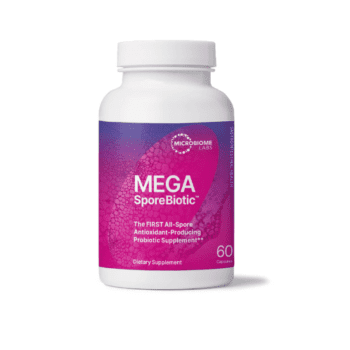
- Select options This product has multiple variants. The options may be chosen on the product page
MegaSporeBiotic
$59.99 – $176.95MegaSporeBiotic™ is a 100% spore-based, broad-spectrum probiotic shown...
-
MegaSporeBiotic For Kids Gummies
$39.00MegaSporeBiotic™ Gummies are a 100% spore-based proprietary probiotic...
-
MegaMucosa
$59.99MegaMucosa is the first complete mucosal support supplement...
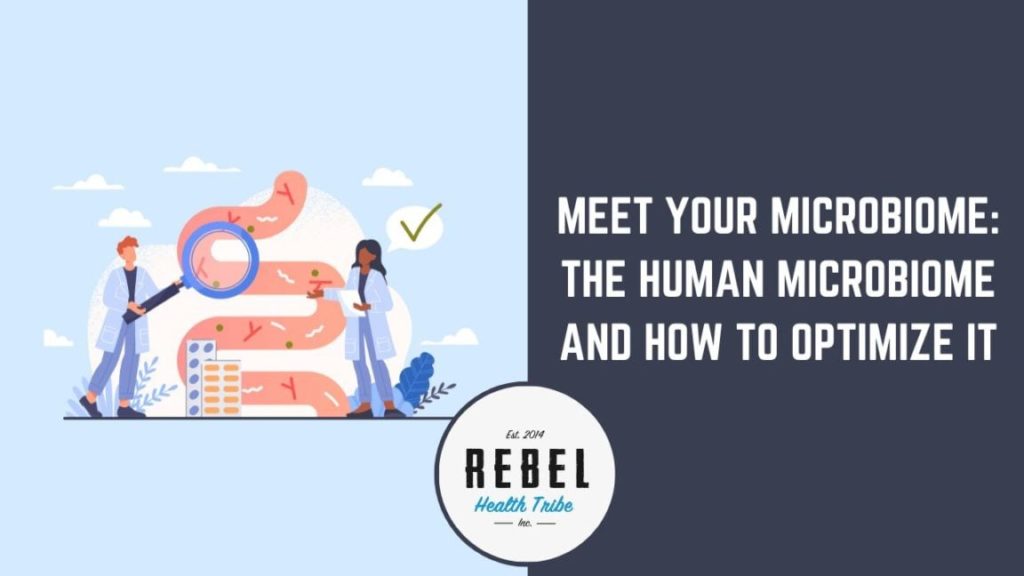
Meet Your Microbiome: The Human Microbiome and How to Optimize It
Meet Your Microbiome: The Human Microbiome and How to Optimize It On and in the average human, there reside approximately
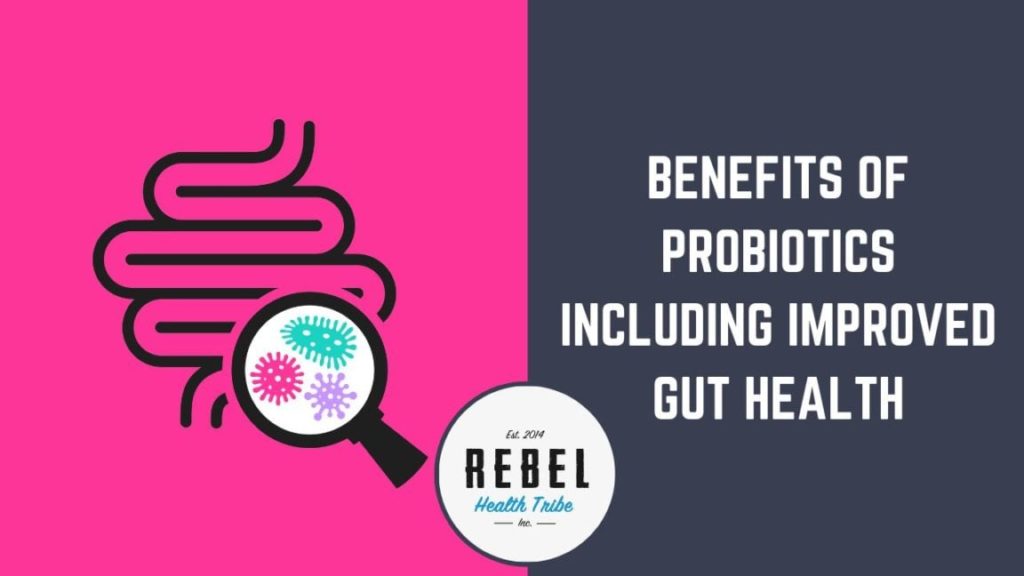
Benefits of Probiotics Including Improved Gut Health
Benefits of Probiotics Including Improved Gut Health “Probiotics” has become quite the buzzword – with countless products and supplements proudly
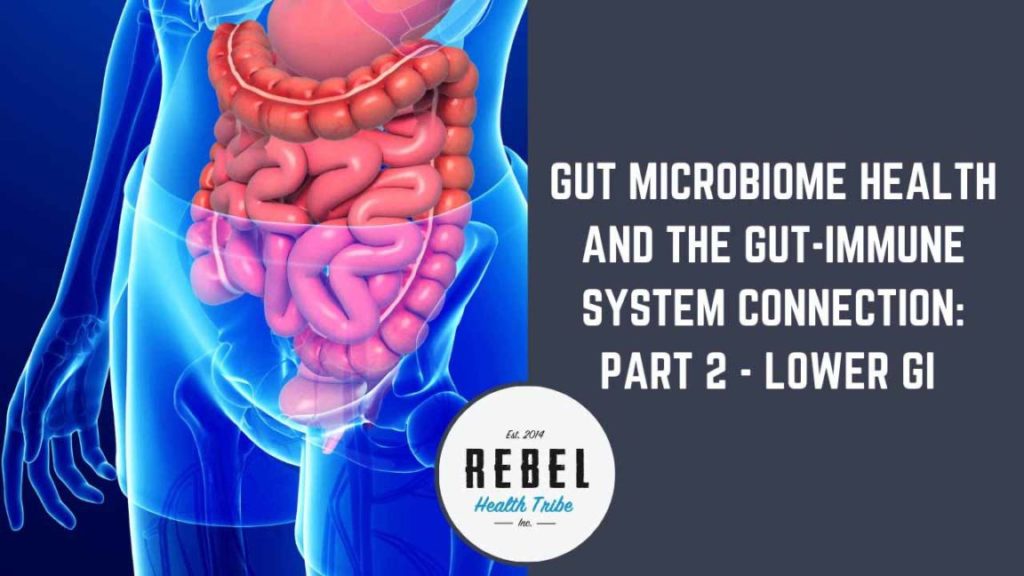
Gut Microbiome Health and the Gut-Immune System Connection: Part 2 Lower GI
Gut Microbiome Health and the Gut-Immune System Connection: Part 2 Lower GI The diverse community of microbes in your digestive
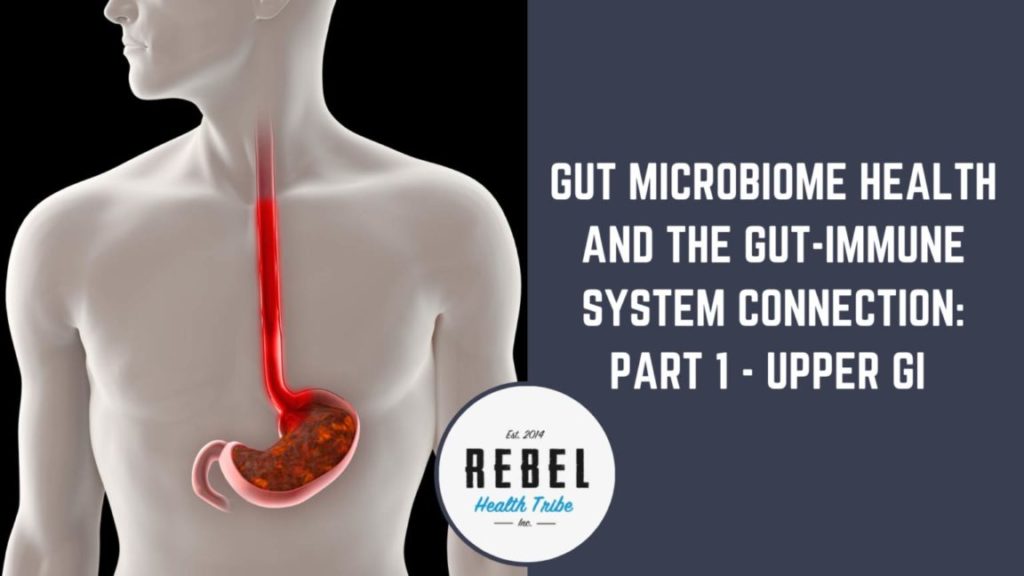
Gut Microbiome Health and the Gut-Immune System Connection: Part 1 Upper GI
Gut Microbiome Health and the Gut-Immune System Connection: Part 1 Upper GI The message is out: gut health is critical


